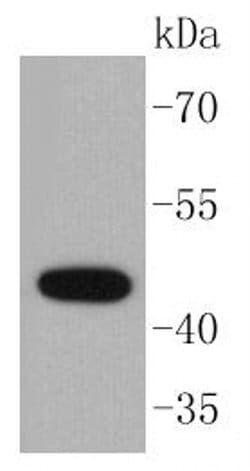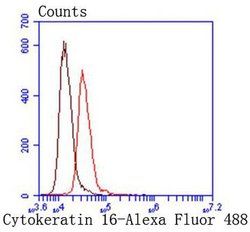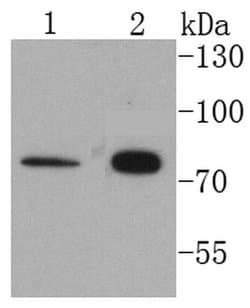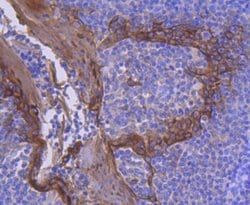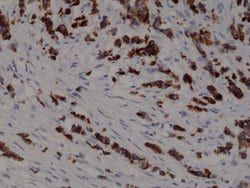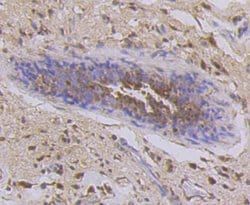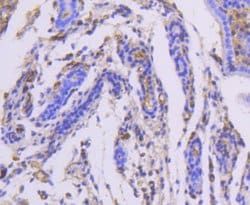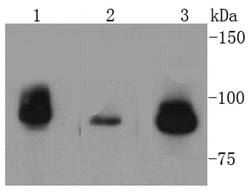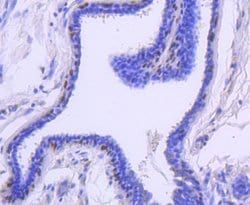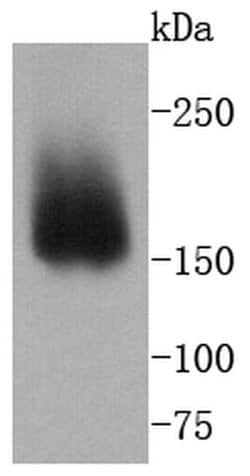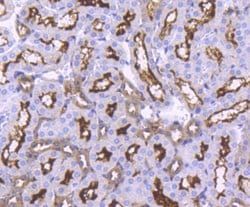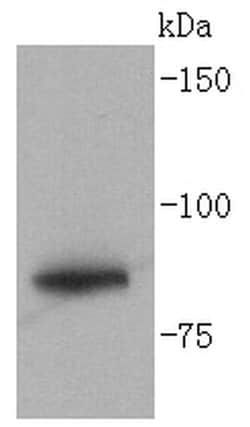Cytokeratin 13 Recombinant Rabbit Monoclonal Antibody (SN71-09), Invitrogen™
Manufacturer: Thermo Scientific
Select a Size
| Pack Size | SKU | Availability | Price |
|---|---|---|---|
| Each of 1 | PIMA532305-Each-of-1 | In Stock | ₹ 48,460.50 |
PIMA532305 - Each of 1
In Stock
Quantity
1
Base Price: ₹ 48,460.50
GST (18%): ₹ 8,722.89
Total Price: ₹ 57,183.39
Antigen
Cytokeratin 13
Classification
Monoclonal
Concentration
1 mg/mL
Formulation
TBS with 0.05% BSA, 40% Glycerol and 0.05% sodium azide, pH 7.4
Gene Accession No.
P08730, P13646
Gene Symbols
KRT13
Immunogen
Synthetic peptide within Human Cytokeratin 13 aa 111-160
Quantity
100 μL
Primary or Secondary
Primary
Target Species
Human, Mouse, Zebrafish
Product Type
Antibody
Isotype
IgG
Applications
Immunocytochemistry, Immunohistochemistry, Western Blot, Western Blot
Clone
SN71-09
Conjugate
Unconjugated
Gene
KRT13
Gene Alias
47 kDa cytokeratin, CK13, CK-13, cytokeratin 13, cytokeratin-13, K13, K-13, Ka13, keratin 13, keratin 13, type I, keratin complex 1, acidic, gene 13, keratin, type I cytoskeletal 13, Keratin-13, Krt-1.13, Krt1-13, KRT13, krt13 {ECO:0000250, MGC161462, MGC3781, Type I keratin Ka13, UniProtKB:P13646}, WSN2
Host Species
Rabbit
Purification Method
Protein A
Regulatory Status
RUO
Gene ID (Entrez)
16663, 3860
Content And Storage
Store at 4°C short term. For long term storage, store at -20°C, avoiding freeze/thaw cycles.
Form
Liquid
Description
- Recombinant rabbit monoclonal antibodies are produced using in vitro expression systems
- The expression systems are developed by cloning in the specific antibody DNA sequences from immunoreactive rabbits
- Then, individual clones are screened to select the best candidates for production
- The advantages of using recombinant rabbit monoclonal antibodies include: better specificity and sensitivity, lot-to-lot consistency, animal origin-free formulations, and broader immunoreactivity to diverse targets due to larger rabbit immune repertoire
- Cytokeratins are a subfamily of intermediate filament proteins and are characterized by a remarkable biochemical diversity, represented in human epithelial tissues by at least 20 different polypeptides
- They range in molecular weight between ∽40 kDa and ∽68 kDa and isoelectric pH between 4.9 - 7.8
- The individual human cytokeratins are numbered 1 to 20
- The various epithelia in the human body usually express cytokeratins which are not only characteristic of the type of epithelium, but also related to the degree of maturation or differentiation within an epithelium
- Cytokeratin subtype expression patterns are used to an increasing extent in the distinction of different types of epithelial malignancies
- The cytokeratin antibodies are not only of assistance in the differential diagnosis of tumors using immunohistochemistry on tissue sections, but are also a useful tool in cytopathology and flow cytometric assays.
